Astronomy
-
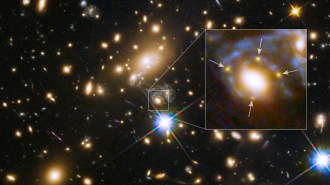 Astronomy
AstronomyA reappearing supernova offers a new measure of the universe’s expansion
Supernova Refsdal blew up once but burst into view at least five times. The timing of its appearances provides clues to how fast the universe is growing.
-
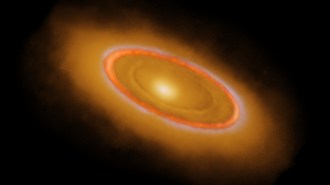 Astronomy
AstronomyThe James Webb telescope revealed surprise asteroids in the Fomalhaut star system
New images of Fomalhaut confirm that an alleged planet is probably just dust while also revealing a new asteroid belt and a “Great Dust Cloud.”
-
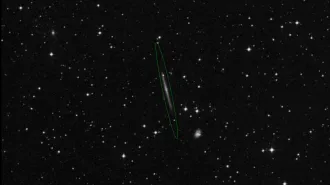 Astronomy
AstronomyA streak of light may not be a black hole fleeing its galaxy after all
A suspicious trail of starlight may just be a spiral galaxy seen edge on, not stars that formed in the wake of a runaway supermassive black hole.
By Liz Kruesi -
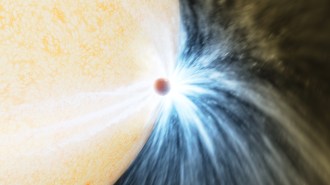 Astronomy
AstronomyFor the first time, astrophysicists have caught a star eating a planet
A burst of light and a cloud of dust are signs that a star 12,000 light-years away swallowed a planet up to 10 times the mass of Jupiter.
-
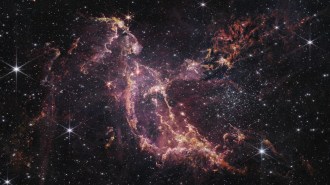 Space
SpaceRocky planets might have been able to form in the early universe
The James Webb telescope spied planet-building material around young stars in a nearby galaxy whose chemical makeup matches that of the early cosmos.
-
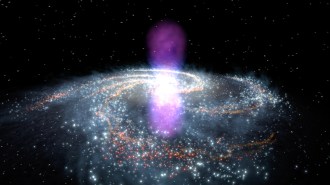 Astronomy
AstronomyCosmic antimatter hints at origins of huge bubbles in our galaxy’s center
An excess of positrons in Earth’s vicinity supports the idea that the Fermi bubbles were burped by the Milky Way’s supermassive black hole long ago.
-
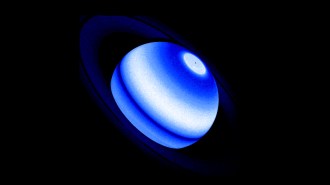 Planetary Science
Planetary ScienceSaturn’s icy rings are probably heating its atmosphere, giving it an ultraviolet glow
Detecting similar emission from a distant world could help astronomers find other planets that boast bright and beautiful rings.
By Ken Croswell -
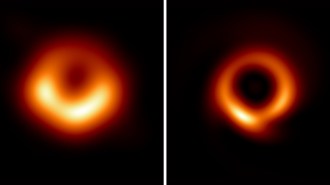 Astronomy
AstronomyThe first black hole portrait got sharper thanks to machine learning
A machine learning technique filled in data gaps in the image of M87’s black hole, resulting in a thinner ring.
-
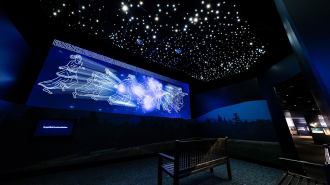 Science & Society
Science & SocietyThe Smithsonian’s ‘Lights Out’ inspires visitors to save the fading night sky
The exhibition examines how light pollution harms astronomy, ecosystems and human cultures. But it also offers hope.
-
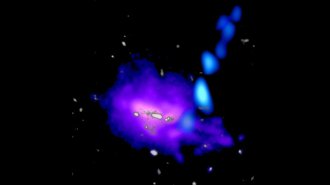 Astronomy
AstronomyA stream of cold gas is unexpectedly feeding the far-off Anthill Galaxy
The finding suggests that early galaxies might have gained more of their bulk from streams of cold gas instead of in violent galaxy collisions.
-
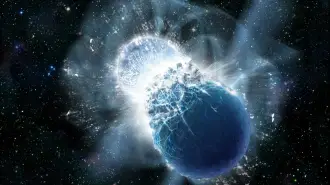 Astronomy
AstronomyA neutron star collision may have emitted a fast radio burst
Astronomers spotted both a fast radio burst and gravitational waves from a cosmic smashup in the same part of the sky and at about the same time.
-
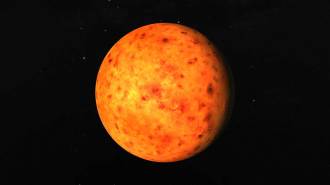 Astronomy
AstronomyThe biggest planet orbiting TRAPPIST-1 doesn’t appear to have an atmosphere
TRAPPIST-1b is hotter than astronomers expected, suggesting there’s no atmosphere to transport heat around the planet.
By Sid Perkins